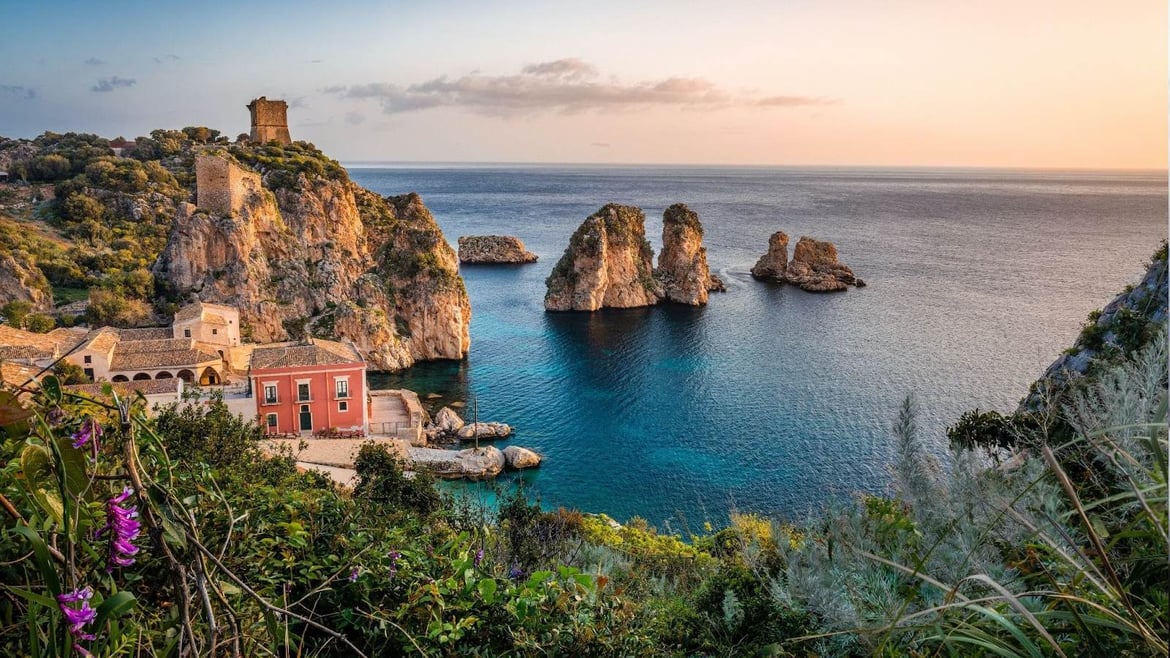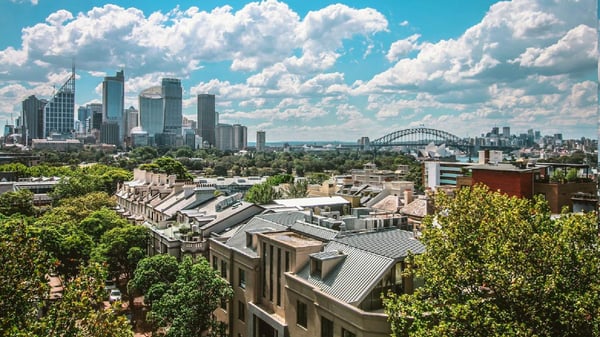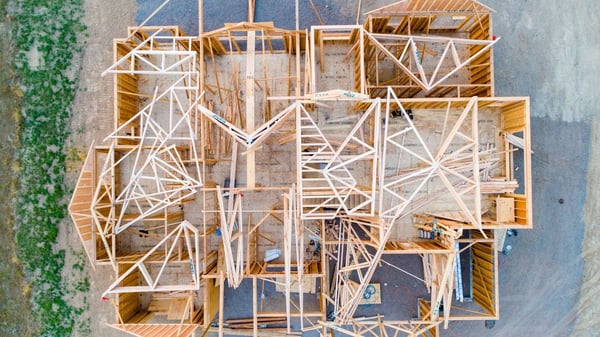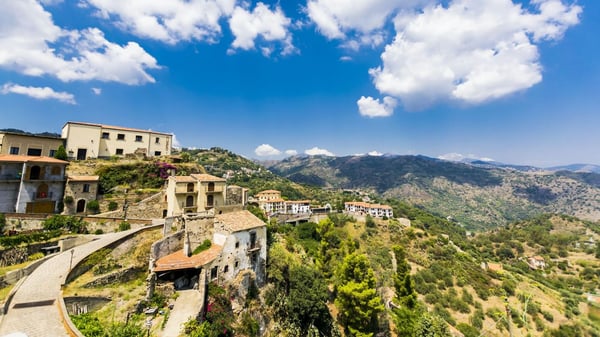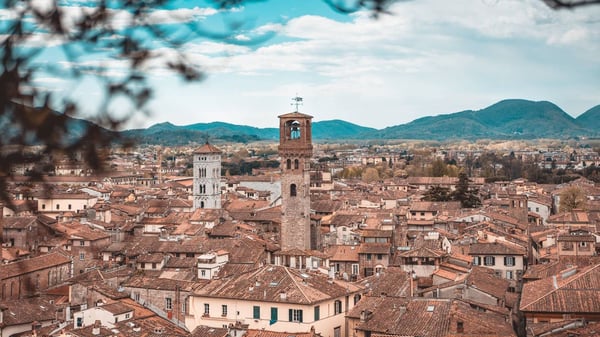If you're looking to buy property abroad, then there are so many reasons to consider Italy. The country has great weather, delicious food, world-class art and culture, as well as reliable transport links. And from an investment perspective, data shows that the Italian real estate market is stable right now. After adjustment for inflation, house prices increased by 1.1% in the year preceding February 2021. There's also a strong culture of home ownership - 70% of Italians are homeowners - so property is considered a sound investment.
If you need to exchange currency for a deposit on an Italian property, you should be aware of hidden bank fees and fluctuating exchange rates. At up to eight times cheaper than a typical bank, CurrencyFair's safe, reliable service saves you money, leaving you with more cash to spend on your ideal Italian home.
The rules around foreigners buying property in Italy
All information is accurate as of November 2021.
Italy has reciprocal treaties with many countries, allowing foreigners to buy property in Italy and Italians to purchase property in that country. Such agreements exist in Italy with the UK and USA, for example.
If your home country doesn't have a reciprocal agreement with Italy, then unfortunately you're not allowed to purchase property there. Your Italian dream may not be over though - keep checking with your government, as new arrangements can be made at any time.
UK nationals buying property in Italy post Brexit
The good news for Brits is that leaving the EU doesn't affect your eligibility to purchase property in Italy, as the UK has a reciprocal agreement with Italy. However, if you plan to stay long periods of time in your Italian home from home, then that's a different story. If you weren't living in Italy before Brexit, and intend to spend more than 90 days there within a six month period, then you will need to apply for a long-stay visa.
How foreigners can buy property in Italy
Buying property in Italy typically takes around six months - we've outlined the major milestones below. It's a relatively straightforward process, however, there are a few requirements that you may not be aware of.
1. Engage a real estate agent
This isn't strictly necessary, but if you don't know the area well then hiring an agent may help you find your ideal home more quickly and without unnecessary hassle. Agents should have excellent market knowledge and can show you properties that are well-suited to your needs. An English-speaking agent is especially useful if you don't speak Italian. And if you only have a limited number of days in the country, then an agent can make sure your available time is put to good use.
2. Get your finances in order
You'll need to have an idea of how you're going to finance the property, whether with an Italian mortgage or an arrangement with your bank at home. And if you don't have the money in euro already, you might want to speak to a currency expert about how to exchange your funds. Otherwise, high rates and bank fees mean you could lose out when it's time to pay your deposit or mortgage.
This would also be a good time to get your “codice fiscale” (Italian tax code), which is issued by the “Agenzia delle Entrate” (Italian Revenue Agency). You need a tax code to create an Italian bank account, which may be necessary if your notary insists on a banker's draft from an Italian bank.
3. Start your property search
Hopefully, you already have an idea of which area you'd like to focus on. Your agent will help you to book viewings in your chosen region, so you can make an informed assessment of properties available within your budget.
4. Make your offer
Once you've found the perfect property, you can make an offer. At this stage, if you're using an agent, you might sign a “proposta irrevocabile d'acquisto” (reservation offer) which is proof that you're committed to buy the property at the stipulated price. It also means the property should come off the market for a limited period of time, normally 15 days. During this time, your solicitor (and perhaps a surveyor) will carry out some preliminary searches on the property. You'll need to pay a small deposit, which is returned to you if the vendor rejects your offer. If the buyer accepts, this initial deposit is non-refundable and you're able to proceed with your purchase.
5. Work with your solicitor and notary
You'll need to employ an Italian “notaio” (notary) who will stamp your contract, verify that everything is done according to Italian law, and eventually witness you and the vendor signing the contract. As the buyer, you can choose the notary yourself - you can search for one using the tool on the Consiglio Nazionale del Notariato website.
Your solicitor will draw up your “contratto preliminare” (preliminary contract). At this point, you'll also be required to pay your “caparra” (deposit). Your solicitor and notary will work with your seller's solicitor to check all the paperwork - this can take a few weeks.
6. Signed, sealed, delivered
Finally, you and the vendor will need to meet at your notary's office to sign the “atto pubblico di compravendita” (public deed of sale). You'll then need to make the final payment, as well as any relevant fees and taxes. Once that's done, you're the owner of a property in Italy - tanti auguri! (Many congratulations!)
Hidden costs
As with any big purchase, it's important to consider any extra costs that may arise. For example, you must add Italian property taxes to your budget. In order to work out the cost of these taxes, you need the “valore catastale” (plot value) of your property, which is based on the property's age, size and a number of other factors. If the dwelling will be your main residence rather than a second home, then that will also increase your taxes. These extra costs could add to the price of your property by 7-15%. It is the notary's job to collect all relevant fees and taxes.
As mentioned above, you will definitely need to pay fees for a solicitor and notary, and perhaps also a real estate agent, translator, and surveyor.
In terms of the deposit, you'll likely need to pay 1% of the purchase price when you make your offer, as a gesture of good faith. The whole deposit will be around 10-20% of the sale price. According to Italian law, if you back out of the sale after paying the deposit then the vendor is not obliged to refund it. But if the seller backs out, they will have to pay you double the deposit amount.
Finally, consider the trips you'll need to make to and from Italy, to carry out viewings and sign the paperwork. You might need to book flights and accommodation for those visits.
How buying property affects Italian residency
Finally, you may fall in love with Italy so much that you decide to move there permanently. However, be aware that buying a property in Italy doesn't grant you the right to permanent Italian residency or citizenship. If you want to spend more than three months in Italy, you might need to apply for a visa, depending on your home country. If your residency application is accepted, you can take advantage of la bella vità all year round!
This information is correct as of 3 November 2021. The information is not to be relied on in making a decision with regard to an investment. The article is purely for general information purposes. Photo by Samuel Ferrara on Unsplash.

